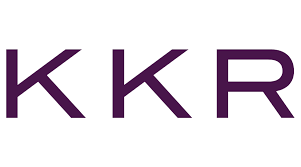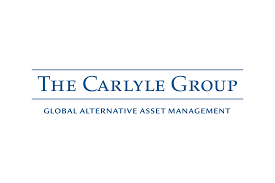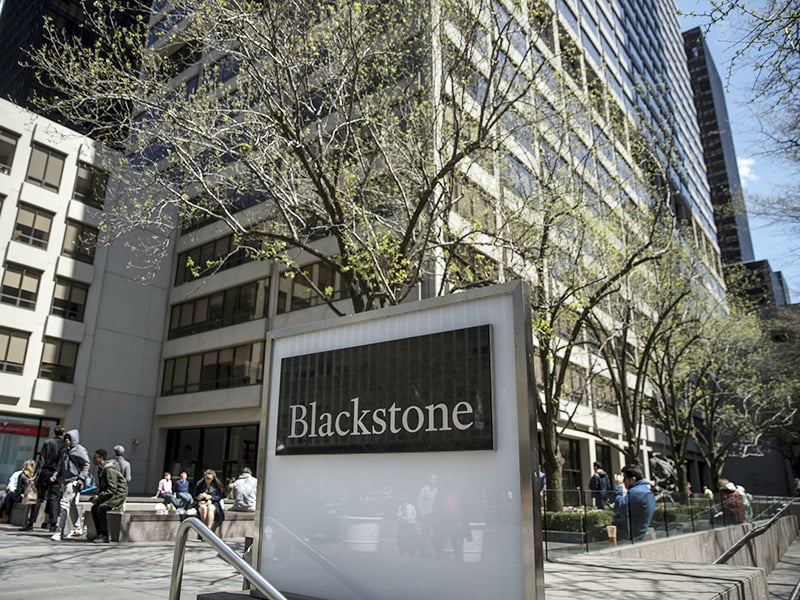In the ever-evolving landscape of alternative investments, Blackstone Group stands as a titan with over $1 trillion in assets under management as of 2024. However, the story of competition in this space is far more nuanced and complex than mere numbers suggest. This comprehensive analysis delves deep into the intricate web of competitors challenging Blackstone’s dominance, examining their strategies, innovations, and market positions in unprecedented detail.
The Evolution of Private Equity Competition
The private equity industry has undergone a remarkable transformation since its inception in the 1960s. What began as a niche investment strategy practiced by a handful of firms has evolved into a sophisticated global industry managing trillions in assets. The competitive landscape has shifted dramatically from the days when Blackstone, KKR, and Carlyle dominated headlines with leveraged buyouts. Today’s private equity arena is characterized by specialized expertise, technological innovation, and a broader definition of alternative investments that encompasses everything from venture capital to real estate and infrastructure.
The industry’s exponential growth is evidenced by the staggering numbers: total private equity assets under management have grown from approximately $1 trillion in 2004 to over $7.3 trillion in 2024. This growth has been accompanied by increasing sophistication in investment strategies, risk management, and value creation approaches. The competitive dynamics have evolved from simple financial engineering to complex operational improvements, digital transformation, and strategic positioning in high-growth sectors.
Top Global Private Equity Competitors
1. KKR (Kohlberg Kravis Roberts)

Website – https://www.kkr.com/
KKR’s evolution from a leveraged buyout specialist to a diversified alternative asset manager represents one of the most successful transformations in the industry. Founded in 1976 by Jerome Kohlberg, Henry Kravis, and George Roberts, the firm has grown to manage over $553 billion in assets as of Q4 2023, positioning itself as one of Blackstone’s most formidable competitors.
KKR’s competitive advantage stems from its early recognition of technology’s transformative potential. The firm has developed a sophisticated technology investment platform that extends beyond traditional private equity into growth equity, venture capital, and digital infrastructure. Their dedicated $8 billion tech growth fund has completed landmark deals, including the $7 billion acquisition of Healthcare Trust of America and the $4.3 billion takeover of Simon & Schuster. These transactions demonstrate KKR’s ability to execute complex deals that combine traditional leveraged buyout expertise with deep sector knowledge.
In healthcare, KKR has built a remarkable franchise that often outcompetes Blackstone in deal sourcing and execution. Their healthcare platform, managing over $12 billion in dedicated capital, has completed over 40 healthcare transactions in the past five years. The firm’s healthcare investment thesis focuses on the intersection of technology and healthcare delivery, positioning them advantageously in the post-pandemic environment.
KKR’s Asian operations deserve special mention, as they represent a significant competitive advantage over Blackstone in certain markets. With 25% of their AUM deployed in Asia-Pacific, KKR has developed deep relationships with local businesses and governments. Their success in Japanese and South Korean markets, particularly in corporate carve-outs and strategic partnerships, has created a sustainable competitive advantage that Blackstone has struggled to match.
2. Apollo Global Management

Website – https://www.apollo.com/
Apollo Global Management has emerged as perhaps the most innovative competitor to Blackstone, particularly in credit markets and insurance-linked investments. Managing $651 billion in assets as of Q4 2023, Apollo’s success stems from its contrarian investment philosophy and ability to find value in complex situations.
The firm’s credit platform, managing over $400 billion, represents the largest alternative credit business globally. Apollo’s expertise in structured credit, direct lending, and distressed investments has created a sustainable competitive advantage that even Blackstone has found difficult to replicate. Their credit strategy combines sophisticated risk management with innovative structuring capabilities, allowing them to generate attractive returns even in challenging market environments.
Apollo’s transformative merger with Athene, valued at $80 billion, revolutionized the relationship between private equity and insurance. This integration provides Apollo with a permanent capital base of over $250 billion, fundamentally changing the competitive dynamics with Blackstone. The insurance platform allows Apollo to deploy capital through market cycles, reducing their dependence on traditional fundraising and creating a more stable revenue stream.
Their Global Wealth business, launched with $50 billion in assets, represents a direct challenge to Blackstone’s successful retail platform. Apollo’s approach focuses on creating innovative investment products that provide individual investors access to institutional-quality alternative investments. Their success in this space has forced Blackstone to accelerate its own retail strategy.
3. The Carlyle Group

Website – https://www.carlyle.com/
The Carlyle Group’s approach to competing with Blackstone centers on geographic diversification and sector specialization. Managing $426 billion in assets, Carlyle’s global platform spans 29 countries and encompasses more than 400 investment professionals. Their competitive advantage derives from their unique position in government-related investments and strong presence in emerging markets.
Carlyle’s government and defense sector expertise represents a significant differentiator from Blackstone. With over $50 billion invested in aerospace and defense-related companies, Carlyle leverages its Washington, D.C. roots and extensive government relationships to source proprietary deals. Their defense sector investments have consistently outperformed broader private equity benchmarks, delivering an average IRR of 25% over the past decade.
The firm’s geographic diversification strategy provides another competitive advantage. With operations split roughly equally between Americas (45%), Europe (35%), and Asia (20%), Carlyle has developed deep local expertise in each market. Their European buyout funds have been particularly successful, generating returns that consistently exceed those of Blackstone’s comparable vehicles.
Rising Challengers
1. Brookfield Asset Management

Website – https://www.brookfield.com/
Brookfield Asset Management has emerged as Blackstone’s primary competitor in real assets, managing an impressive $825 billion portfolio. Their approach to competition focuses on operational expertise and sustainable infrastructure investments, creating a distinct value proposition for investors.
Brookfield’s renewable power platform, managing $70 billion in assets, exemplifies their competitive strategy. The firm has developed extensive operational expertise in renewable energy assets, managing everything from hydroelectric facilities to wind farms and solar installations. Their ability to improve operational efficiency in complex infrastructure assets often gives them an advantage over Blackstone in competitive bidding situations.
Their digital infrastructure initiative represents another area where Brookfield has established a leadership position. Managing over $20 billion in data center assets, fiber networks, and telecommunications infrastructure, Brookfield has positioned itself at the forefront of digital transformation. Their operational expertise in these complex assets allows them to create value through technical improvements and strategic positioning, rather than relying solely on financial engineering.
2. EQT Partners

Website – https://eqtgroup.com/
EQT Partners represents the emergence of European firms as global competitors to Blackstone. Managing over $100 billion in assets, EQT has distinguished itself through its focus on digital transformation and sustainability. Their approach to private equity investing combines traditional financial analysis with advanced technology and ESG integration.
The firm’s digital transformation expertise is particularly noteworthy. EQT has developed proprietary artificial intelligence and machine learning tools for deal sourcing and value creation. Their digital team, comprising over 100 technology professionals, works across the portfolio to implement digital initiatives and drive operational improvements. This technology-first approach has allowed EQT to compete effectively with Blackstone, particularly in European markets.
Specialized Sector Competitors
1. Real Estate Specialists
In the real estate sector, Blackstone faces specialized competition from firms like Starwood Capital Group and Lone Star Funds. Starwood, managing $115 billion in assets, has developed particular expertise in hospitality and distressed real estate investments. Their ability to identify and execute complex real estate transactions has allowed them to compete effectively with Blackstone in specific market segments.
2. Credit Market Competitors
The competitive landscape in alternative credit markets has grown increasingly sophisticated, with several firms mounting serious challenges to Blackstone’s credit business. Ares Management, managing over $350 billion in assets, has established itself as a dominant force in direct lending and private credit markets. Their success stems from a deep understanding of middle-market lending dynamics and an extensive network of sponsor relationships built over decades. Ares has developed a particular expertise in complex credit situations, often providing innovative financing solutions that Blackstone’s more standardized approach cannot match.
Oaktree Capital, with $170 billion under management, represents a different kind of credit market competitor. Founded by Howard Marks and Bruce Karsh, Oaktree’s contrarian approach to credit investing has created a unique competitive advantage. Their specialty lies in distressed debt investing, where they’ve consistently outperformed peers through multiple market cycles. Oaktree’s patient capital approach and willingness to take concentrated positions in complex situations have allowed them to capture opportunities that larger firms like Blackstone sometimes overlook due to size constraints or institutional preferences.
One of the most interesting developments in credit market competition has been the emergence of hybrid credit platforms. Firms like HPS Investment Partners, managing over $95 billion, have developed flexible investment mandates that allow them to invest across the capital structure. This adaptability enables them to compete effectively with Blackstone in multiple credit market segments, from direct lending to special situations and structured credit.
Emerging Market Dynamics
1. Asian Powerhouses
The competitive landscape in Asia presents unique challenges to Blackstone’s global dominance. Hillhouse Capital Group, managing over $100 billion, has emerged as a formidable competitor in Asian markets, particularly in China and Southeast Asia. Founded by Lei Zhang, Hillhouse’s approach combines deep local market knowledge with global investment expertise. Their particular strength lies in technology and consumer investments, where they’ve consistently outmaneuvered global firms like Blackstone through superior local market intelligence and stronger relationships with entrepreneurs.
PAG, formerly Pacific Alliance Group, represents another significant Asian competitor managing $50 billion across private equity, real estate, and absolute return strategies. Their competitive advantage stems from an extensive network of relationships across Asia-Pacific markets and deep operational expertise in key sectors. PAG’s ability to execute complex cross-border transactions and navigate local regulatory environments has allowed them to win deals that might traditionally have gone to global firms like Blackstone.
The emergence of Chinese state-backed investment vehicles has added another layer of complexity to the competitive landscape. China Investment Corporation (CIC), managing over $1.35 trillion, has evolved from a passive sovereign wealth fund into an active competitor for global assets. Their ability to deploy massive amounts of capital and tolerance for longer investment horizons often puts them in direct competition with Blackstone for large-scale investments.
2. Middle Eastern Competition
The competitive dynamics in Middle Eastern markets have been transformed by the emergence of sovereign wealth funds as active investors. The Public Investment Fund (PIF) of Saudi Arabia, managing $700 billion, has evolved from a traditional sovereign wealth fund into an aggressive global investor. Their Vision Fund partnerships and direct investment program have created new competitive pressures for firms like Blackstone, particularly in technology and infrastructure sectors.
Mubadala Investment Company, managing over $284 billion, represents another example of sovereign wealth funds’ evolution into sophisticated investment competitors. Their approach combines direct investment capabilities with strategic partnerships and co-investment platforms. Mubadala’s ability to offer strategic benefits beyond capital, particularly in terms of regional market access and government relationships, often gives them an advantage over traditional private equity firms like Blackstone in competitive situations.
Investment Performance and Competitive Metrics
The competition between these firms can be measured through various performance metrics, revealing interesting patterns in their relative strengths. Analysis of five-year fund performance shows significant variation across strategies and regions. While Blackstone’s flagship private equity funds have generated a 22.3% net IRR over this period, competitors have achieved comparable or superior results in specific sectors. KKR’s technology-focused funds, for instance, have delivered a 24.1% net IRR, while Apollo’s credit strategies have consistently outperformed with a 23.7% return in their flagship credit vehicles.
Capital Raising and Distribution Capabilities
The competition for investor capital has intensified significantly, with each firm developing unique approaches to fundraising and investor relations. Blackstone’s success in raising $148 billion in 2023 set a new industry benchmark, but competitors have responded with innovative fundraising strategies of their own. KKR’s $89 billion raise demonstrated the power of their multi-strategy platform, while Apollo’s $72 billion fundraise highlighted strong investor appetite for their credit-focused strategies.
The retail investor channel has emerged as a crucial competitive battleground. Brookfield’s successful raise of $93 billion included significant capital from high-net-worth individuals, achieved through an innovative distribution platform that combines traditional wealth management relationships with digital access tools. This success has forced competitors to accelerate their retail distribution strategies, leading to significant investments in technology and distribution infrastructure.
Innovation and Technology Integration
The competitive landscape has been fundamentally altered by technology integration across the investment process. Each firm has developed proprietary technology solutions that provide unique competitive advantages. KKR’s extensive investments in data analytics and artificial intelligence have created sophisticated deal-sourcing capabilities that often identify opportunities before competitors. Apollo’s development of proprietary credit analysis tools has enhanced their ability to evaluate complex debt instruments and structure innovative financing solutions.
Blackstone’s competitors have also made significant strides in operational technology. EQT’s digital transformation platform has become an industry benchmark, combining advanced analytics with practical operational improvements. Their success in driving value creation through digital transformation has forced other firms to accelerate their own technology initiatives.
ESG and Sustainable Investing Competition
The competition for leadership in sustainable investing has intensified dramatically. Brookfield’s $15 billion Global Transition Fund represents the largest private market commitment to climate change investment, directly challenging Blackstone’s position in the sector. Their approach combines traditional infrastructure expertise with innovative sustainability metrics, creating a compelling value proposition for ESG-focused investors.
KKR’s $4 billion Global Impact Fund demonstrates another competitive approach to sustainable investing, focusing on companies that deliver measurable social and environmental impacts alongside financial returns. Their success in this space has forced other firms to develop more sophisticated approaches to impact measurement and ESG integration.
Future Competitive Landscape
The evolution of competition in alternative investments shows no signs of slowing. Several key trends will likely shape the competitive landscape over the next decade:
- Democratization of Alternative Investments: The competition for retail investor capital will intensify, driving innovation in product structure and distribution. Firms that can effectively combine institutional quality investments with retail-friendly access will likely gain significant competitive advantages.
- Technology Integration: The race to develop and deploy advanced technology solutions will accelerate. Machine learning and artificial intelligence will become increasingly central to both investment decision-making and operational improvement strategies.
- Sustainability Leadership: Competition for leadership in sustainable investing will drive innovation in impact measurement and ESG integration. Firms that can demonstrate genuine impact alongside strong financial returns will likely attract disproportionate capital.
- Geographic Expansion: The emergence of strong regional competitors will continue, particularly in Asia and the Middle East. Global firms will need to balance local market expertise with global capabilities to remain competitive.
Conclusion: The Future of Competition
The competitive landscape facing Blackstone and its peers continues to evolve at an unprecedented pace. While traditional measures of success – assets under management, fund performance, and capital raising capability – remain important, new dimensions of competition are emerging. The ability to integrate technology, develop innovative investment solutions, and demonstrate leadership in sustainable investing will likely determine competitive success in the coming decades.
For investors, this intensifying competition creates both opportunities and challenges. The proliferation of investment strategies and approaches requires more sophisticated due diligence and manager selection processes. However, it also provides opportunities for portfolio diversification and access to specialized expertise across different sectors and strategies.
The future of alternative investment competition will likely be shaped by firms’ ability to combine traditional investment expertise with new capabilities in technology, sustainability, and product innovation. Those that can successfully navigate this evolution while maintaining strong investment performance will emerge as the leaders of tomorrow’s alternative investment industry.
Also Read: The Unparalleled Influence of the Blackstone Group
To read more content like this, subscribe to our newsletter




